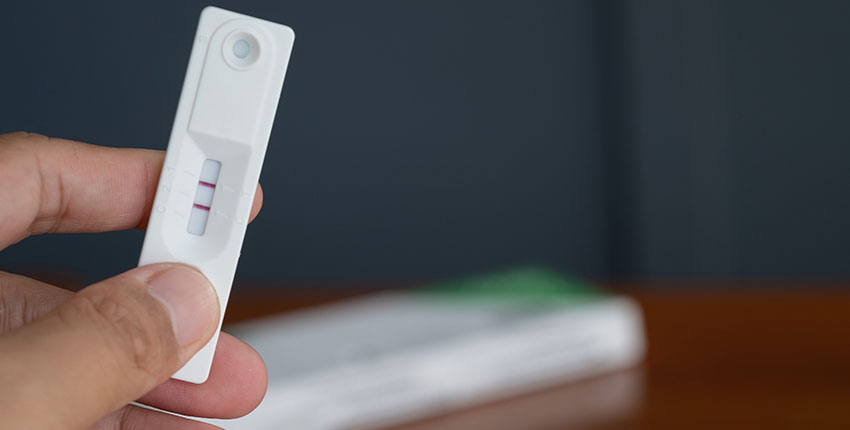A new study by Harvard Medical School researchers at Massachusetts General Hospital and Brigham and Women’s Hospital has found that one in five individuals taking nirmatrelvir-ritonavir therapy, commonly known as Paxlovid, to treat severe symptoms of COVID-19 had a positive test result and shed live potentially contagious virus following an initial recovery and negative test — a phenomenon known as virologic rebound. By contrast, people not taking Paxlovid experienced rebound only about 2 percent of the time.
Results of the study, which was partly funded by the HMS-led Massachusetts Consortium on Pathogen Readiness, are published Nov. 13 in Annals of Internal Medicine.
The results indicate that viral rebound may occur more often than previously believed and raise questions about the risk of viral transmission by those who do experience a return of the virus.
“We conducted this study to address lingering questions about Paxlovid and virologic rebound in COVID-19 treatment,” said senior author Mark Siedner, associate professor of medicine at HMS and an infectious disease clinician and researcher at Mass General. “We found that the virologic rebound phenomenon was much more common than expected — in over 20 percent of people taking Paxlovid — and that individuals shed live virus when experiencing a rebound, which means they may be contagious after initial recovery.”
Paxlovid is an oral antiviral medication used to treat COVID-19. Previous studies demonstrate the medication’s effectiveness in reducing hospitalization and death in cases of severe COVID-19. Since the integration of Paxlovid into COVID-19 treatment, some patients have reported virologic rebound. A previous phase 3 clinical trial known as EPIC-HR suggested that only 1 to 2 percent of patients taking Paxlovid experienced virologic rebound.
The findings should not discourage clinicians from prescribing the medication, the researchers noted, but they should prompt them to counsel patients who take the medication about the risk for viral rebound and spreading the virus to others.
“Paxlovid remains a lifesaving drug I prescribe to high-risk patients,” said co-senior author Jonathan Li , associate professor of medicine at HMS and an infectious disease physician at Brigham and Women’s. “This study, while informative, does not change the fact that this drug is very effective at preventing hospitalizations and death. Instead, it offers valuable insights to Paxlovid patients, helping them understand what to expect and how long they might be contagious.”
The researchers caution that the study relied on observation and was not a randomized controlled trial, so the scientists cannot be certain that the increased rebound rate seen in people taking Paxlovid was solely due to use of the drug.
Teusday, December 19, 2023
Refrences
Please Check out file at the following link
Some Benefits of Exercise Stem from the Immune System
Research team develops a new vaccine that kills HIV in monkeys


